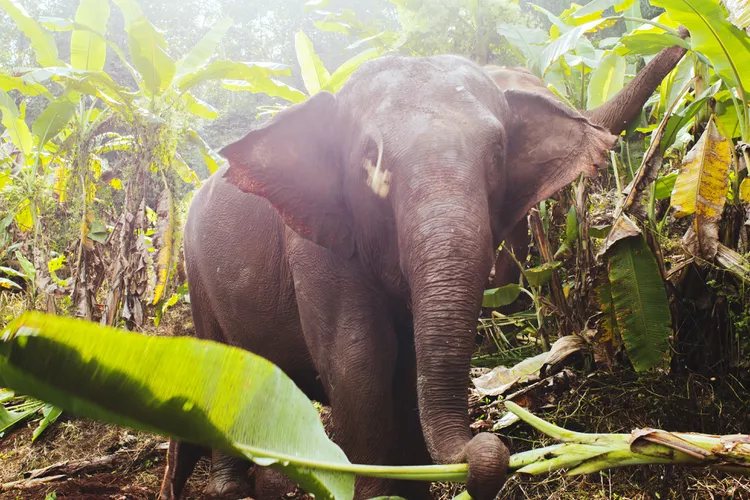Summary of Essential Safety Tips
Southeast Asia mostly makes the news when something terrible happens. After all, natural disasters and political turmoil grab more eyeballs than happy travelers enjoying good food and generally having the times of their lives.
Unfortunately, this gives the impression that traveling in Southeast Asia is a dangerous, foolhardy proposition when it’s not. Staying safe in Southeast Asia is a no-brainer; use these safety tips to come home happy and healthy.
Scams and Ripoffs
With poverty a major issue throughout much of Southeast Asia, Westerners are often viewed as walking cash machines. Travelers are often clueless about local prices and customs, making them an easy target for scammers. Try not to let a few unscrupulous hustlers jade you with an unfair bias against normally genuine people.
This scam mindset seems most rife in Saigon, Vietnam, particularly in the backpacker area of Pham Ngu Lao. Most of these scams fall into a rough pattern, though: to find out how to avoid being fleeced by “enterprising” locals in Vietnam, read this summary of scams in Vietnam, or take a broader view and read more about avoiding popular scams in Southeast Asia.
To save money in general, you have to learn how to negotiate prices throughout the region. This skill will come in handy whether you’re dickering down with a cyclo driver or getting the best price for a knick-knack in one of Southeast Asia’s markets.
Alcohol and Drugs
Unsurprisingly, drugs or excessive alcohol usually play a part in many trips gone wrong. Despite being readily available in seemingly lawless places such as Vang Vieng, Laos and the Gili Islands, drugs are illegal throughout Southeast Asia. Getting caught carrying drugs is actually punishable by death!
The laws regarding drugs in Singapore are harsh and mercilessly applied to locals and tourists alike; drug laws in Bali and the rest of Indonesia are almost as strict, but spottily enforced; and the drug scene in Cambodia turns a blind eye to marijuana (in practice) but cracks down on harder drugs.
Alcohol is mostly legal throughout Southeast Asia, with a few exceptions: the tiny country of Brunei, along with conservative parts of Indonesia and Malaysia, completely ban booze. Indonesia and Singapore have recently clamped down on drinking with stricter new laws.
Advice for Female Travelers
Cultural differences mean female travelers get an unfair share of attention from local men while traveling throughout Southeast Asia. It can’t be helped: local men superimpose their own culture’s expectations of women onto female outsiders as well, and most local cultural expectations of women tend to lean conservative.
To make matters worse, in places where dark skin is the norm, fair skin is viewed as exotic and sexy – increasing the likelihood of unwanted advances.
It doesn’t seem fair or right to have rules that apply only to women, but it wouldn’t be realistic to leave them out:
- Cover up – Cover yourself when coming off the beach. Buddhist, Muslim and Hindu cultures found in the islands are generally conservative. Topless sunbathing is looked down upon by both local men and women.
- Watch for miscommunication – Seemingly harmless gestures such as putting an arm around someone of the opposite sex can be interpreted differently across cultural divides.
- Watch your Drink – Putting drugs into untended drinks is still commonplace on many of the islands. Do not accept drinks from strangers.
Political Situations
Political turmoil can pop up unexpectedly even in the most well-trafficked tourist places. While these feuds usually do not target foreigners, it’s possible to get caught in the wrong place at the wrong time. Even peaceful protests have sometimes turned violent without warning.
In case the situation deteriorates to the point of evacuation, it’s advisable to register your trip with your local authorities for safety updates.
Due to the political goings-on in parts of Southeast Asia, your insurance might not cover your visits to certain spots. Before embarking on your trip, check your travel insurance for exclusions that might void your coverage.
Staying Healthy
While tsunamis and earthquakes dominate the news, less-obvious threats such as fevers, bad stomachs and severe sunburn often ruin more trips to Southeast Asia.
An abundance of exotic — and often spicy — food can be a shock to unsuspecting Western stomachs. While not a show-stopper, no one wants to spend unnecessary time in squat toilets. Learn how to control your stomach and avoid traveler’s diarrhea.
With much of Southeast Asia situated near the equator, the sun is much less forgiving than at home.
Avoiding Things that Bite
Unfortunately, beautiful scenery and tropical weather come with a price: More things want to bite you in Southeast Asia! From surprise monkey attacks while hiking to bedbugs silently making you into dinner, use these tips to avoid becoming food for the local wildlife.
Dengue fever is prevalent throughout Southeast Asia; no vaccination exists. The best way to avoid mosquito-borne illnesses such as Japanese encephalitis and malaria is not to be bitten in the first place!
Bedbugs were once only a nightmare for budget travelers; now, they can be found even in luxury hotels.
Mischievous macaque monkeys make great subjects for photographs, but a single bite or scratch could send you to the local clinic for injections. Therefore, it’s best to avoid monkey attacks.
Hiking and Trekking Safety
No trip to Southeast Asia is complete without spending some time in the beautiful rainforests or jungle. National parks and trails abound; outdoorsy travelers with a serious appetite for adventure may even choose to climb some active volcanoes in Indonesia.
Surprise weather, loose volcanic shale, and other threats have sometimes turned fun adventures into survival situations. Therefore, being prepared is paramount for a successful adventure.





